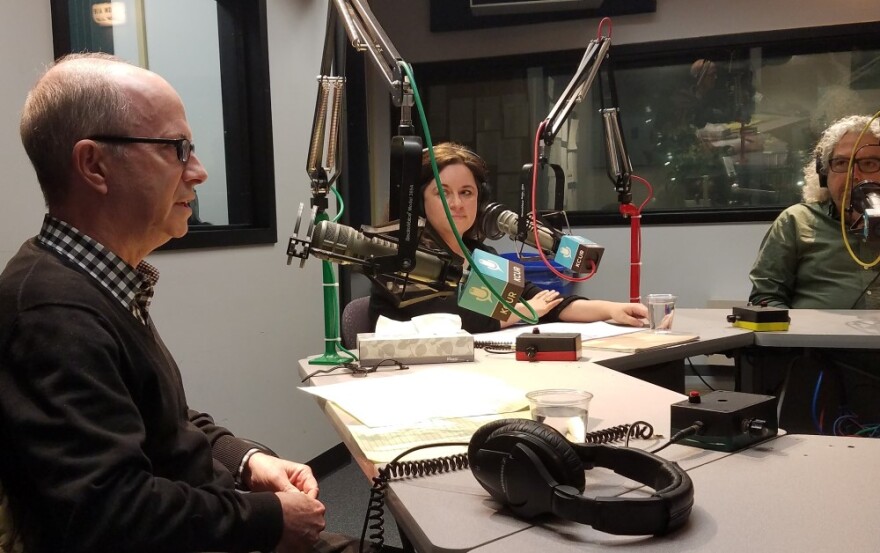Moving back to Kansas City from New York City in the mid to late 1980s was an eye-opening experience for David Hughes.
"I started meeting artists, curators, dancers and musicians. I saw a lot of amazing individuals doing interesting work," says Hughes, who realized that "artists need support."
American Century Investments, his employer at the time, contributed $10,000. And, in 1997, four cash awards were distributed to artists as the newly created Charlotte Street Foundation.
"I didn't have any huge grand plan, if you will," says Hughes. "I wanted to get started, I wanted to keep learning. I wanted the artists and curators to direct this."
Twenty years on, Charlotte Street continues to provide support for artists — through grants, as well as studios, residencies, exhibitions and other public programming. The organization has become a model for other agencies across the country. And it predated the establishment of national organizations to support artists such as United States Artists (by the Ford Foundation) and Creative Capital (by the Warhol Foundation).
But Charlotte Street is probably still best known for its unrestricted cash awards for visual and, since 2008, for generative performing artists. Nearly $1 million to 110 artists to date, including 2017's artists: Karen McCoy, Stephen Proski, Samara Umbral, Amado Espinoza and Cat Mahari, who received $10,000 each.
Artists are notified with a phone call, often on the same day the decision is made by a panel of advisors.
"That's the best part of this job, actually, is being able to call artists," Foundation Executive Director and Artistic Director Amy Kligman told host Steve Kraske on Tuesday's Up To Date.
Kligman, who's also an artist, has not only called the award recipients — she's received the call, too. Her husband, Misha Kligman won in 2015, before she joined the organization. And she won an award in 2014. Those funds, she says, enabled her to pay her studio costs for a year and there were no strings attached.
Through the years, artists have paid for travel, art supplies, studio space and student debt.
"It was part of my sustainability. I needed food and I needed to pay the mortgage," says James Woodfill, an associate professor in painting at the Kansas City Art Institute, who received an award in 2000.
Charlotte Street, says Woodfill, helped provide a foundation two decades ago that led to broader support for Kansas City artists to do "the work they want to do ... It's a validation that the work that we do is recognized and important."
Hughes adds, "I think Kansas City used to be somewhat siloed ... and I think that is not true. I think we're part of the national conversation."
Laura Spencer is an arts reporter at KCUR 89.3. You can reach her on Twitter at @lauraspencer.






